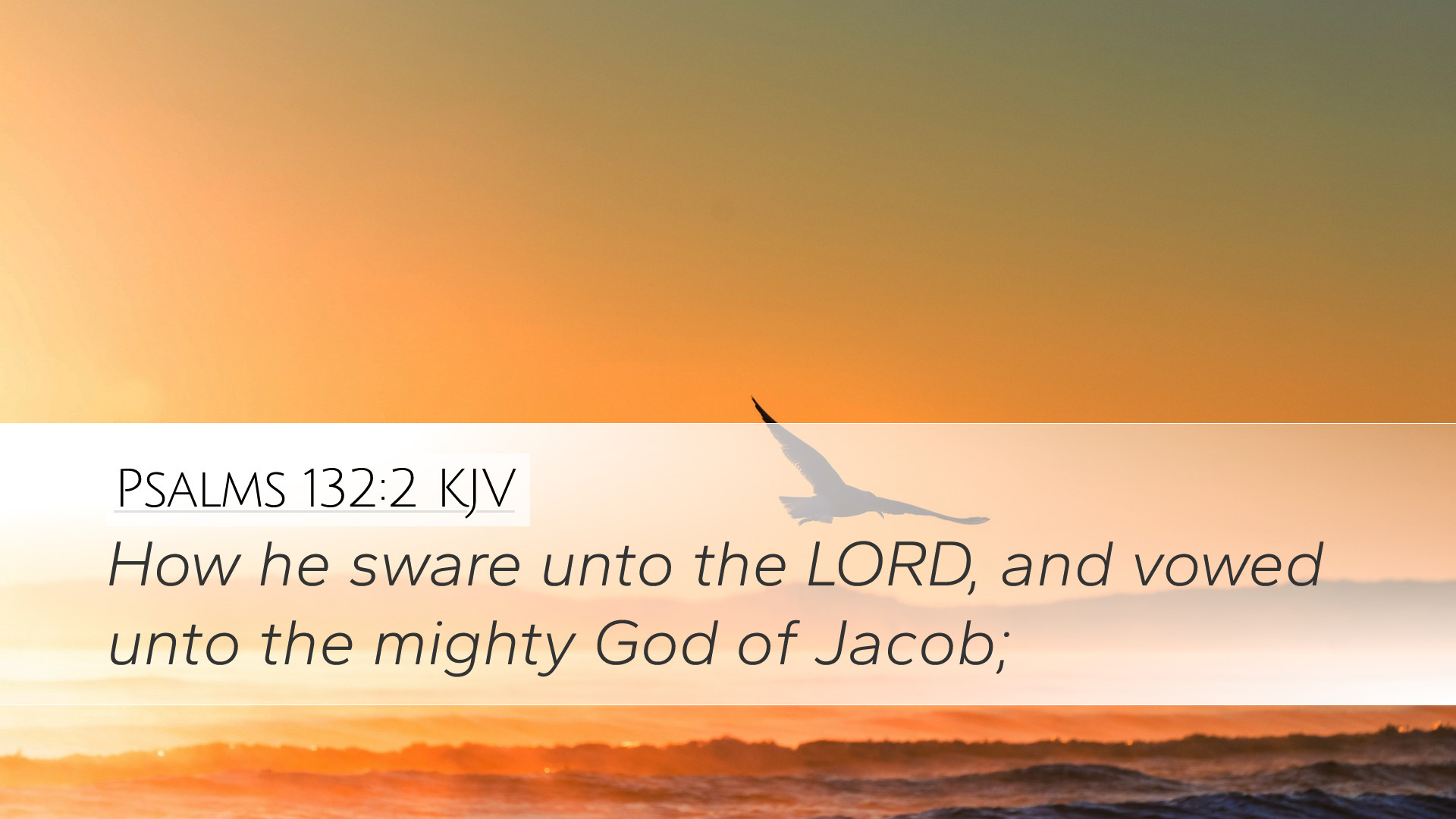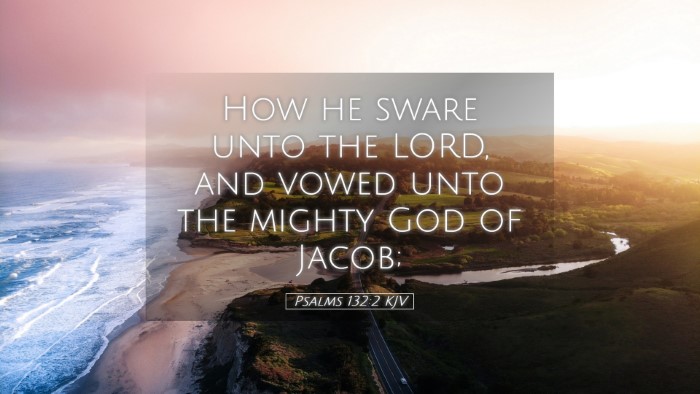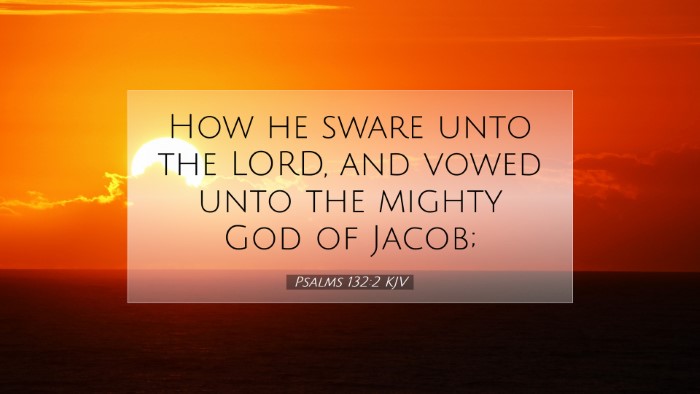Commentary on Psalms 132:2
Bible Verse: Psalms 132:2 - "How he sware unto the LORD, and vowed unto the mighty God of Jacob."
Introduction
The verse before us evokes profound themes of promise, dedication, and divine purpose. The psalmist reflects on the commitment of David towards establishing a dwelling for the Ark of the Covenant, symbolizing God's presence among His people. This commentary integrates insights from renowned public domain biblical scholars, providing a multi-faceted understanding for pastors, students, and theologians.
Historical Context
David, as depicted in Scripture, was a man after God's own heart, showcasing a strong desire to honor God above all. This verse ties into the broader narrative of Psalm 132, which recounts the importance of the Davidic covenant and the significance of Zion as the chosen dwelling place of God. Observing the context encourages us to appreciate the historical significance of David's vow not just as an isolated promise, but as part of a divine plan for both Israel and the future Messiah.
The Nature of David's Vow
This vow, as highlighted by Matthew Henry, reflects David's earnestness and deep commitment. David did not simply make a passing remark; he swore to the Lord fervently. In the biblical tradition, swearing an oath implies invoking God's name, thus underscoring the seriousness of one's pledge. This resonates with the contemporary believer's understanding of commitment to God.
Elements of the Vow
- Sincerity: David’s vow was not born out of impulsive emotion but from a sincere heart yearning for a place where God could dwell.
- Public Declaration: This commitment was known to the people, reflecting a public aspect of faith that encouraged communal reverence for God.
- Purposeful Intent: The vow had a clear purpose — to build a temple for God that would become central to Israel's worship.
Theology of Promise
Albert Barnes emphasizes the relationship between God's promises to His people and the promises made by His people to Him. David's pledge represents an instance of reciprocal faithfulness, illustrating how divine initiative invites human response. This theological principle of covenantal relationship is crucial in understanding God's dealings with humanity.
God's Response to Vows
In the biblical narrative, the faithfulness of God often corresponds to the faithfulness of His people. As seen in David’s life, though he faced trials, God’s covenant was established with him. Adam Clarke remarks that human vows should be taken seriously, for they invoke God's divine attention. Clarke’s commentary encourages believers to live in accordance with their commitments, reiterating that God honors those who honor Him.
Spiritual Implications for Today
For pastors and theologians today, Psalms 132:2 serves as a call to reevaluate personal and communal commitments to God. The depth of David's vow transcends time, pointing to a model of devotion worthy of emulation.
Encouragement for Believers
- Renewed Commitment: Believers are encouraged to refresh their dedication to God, evaluating commitments in personal and corporate worship.
- Honoring God: The narrative teaches that honoring God through intentional actions leads to His blessing and presence.
- Community Awareness: Just as David’s vow was public, believers today are called to foster a community that collectively honors God, magnifying His dwelling among them.
Conclusion
Psalms 132:2 captures the heart of worship, duty, and divine presence. The reflections of scholars illuminate the richness of David’s vow as an archetype for contemporary faith. As we contemplate this verse, may our hearts be stirred to pledge our lives to God, recognizing the weight and importance of our commitments. The legacy of David’s faithfulness beckons us to engage in a deeper relationship with the God who desires to dwell among His people.


